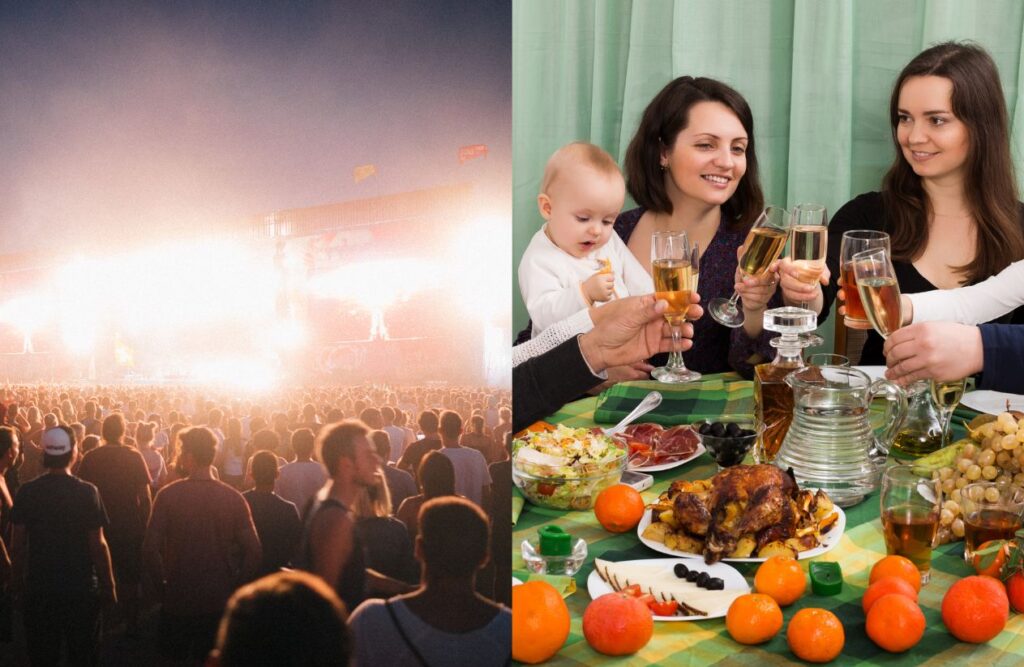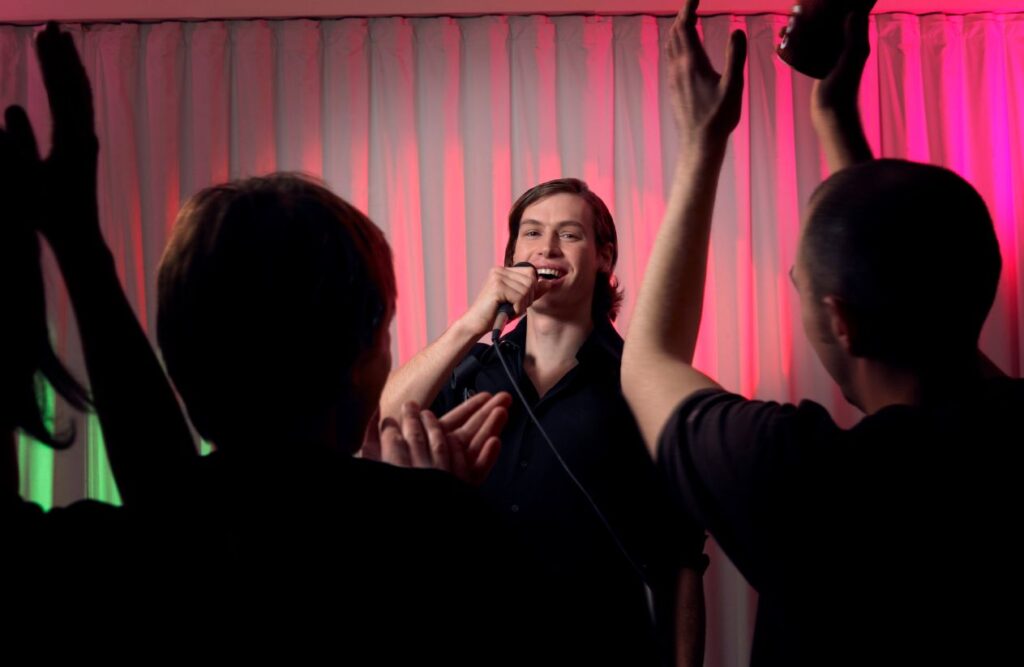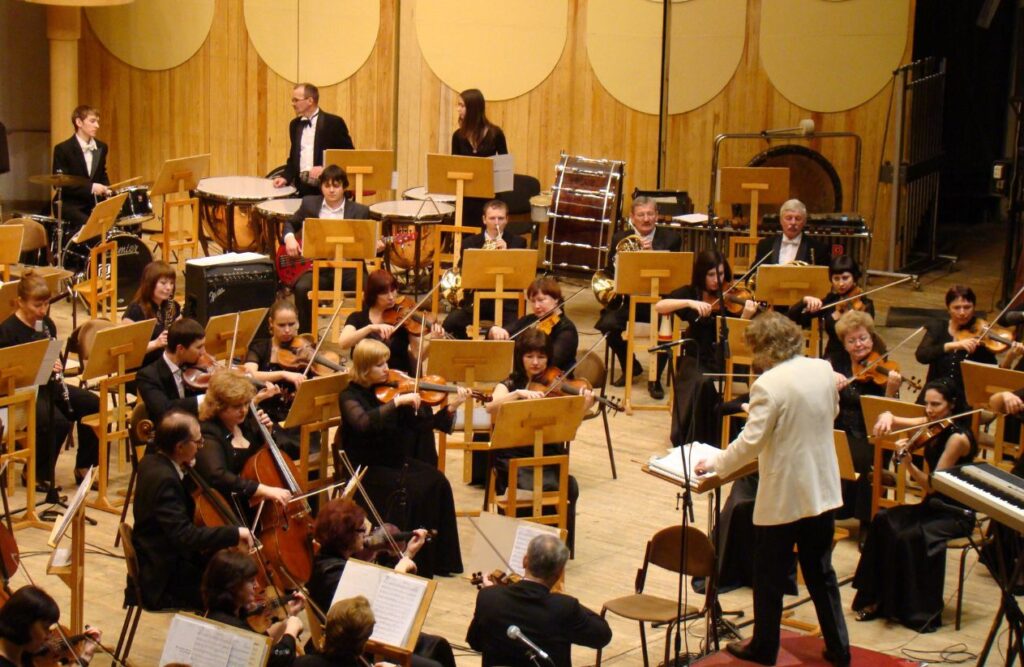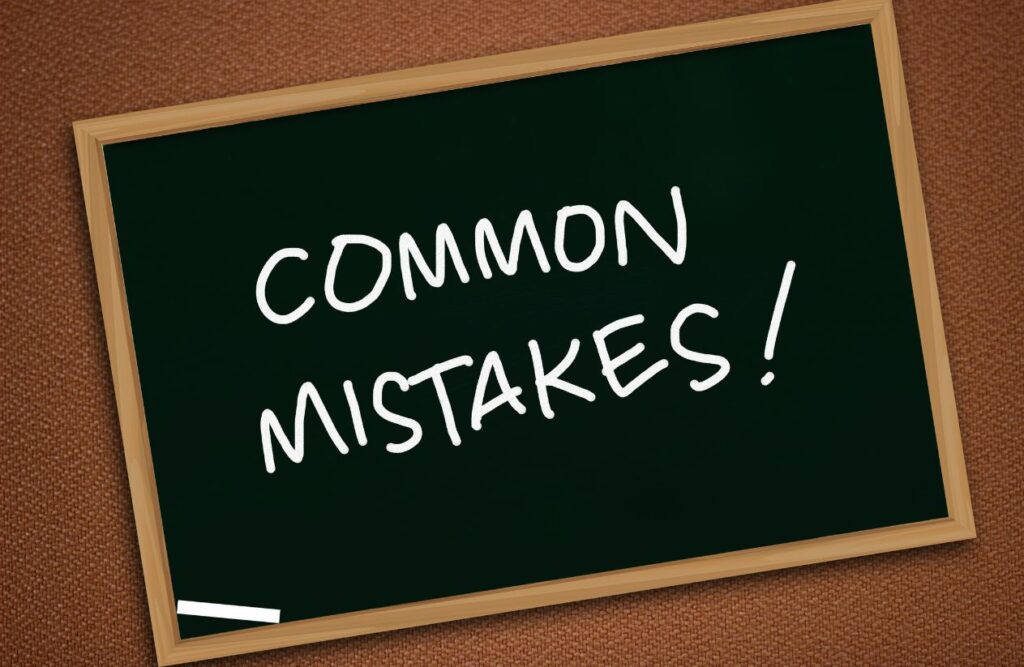Planning any event, from intimate gatherings to grand celebrations, can be stressful. You want it to be memorable, and entertainment plays a vital role in setting the mood and creating a lasting impression.
The right entertainment, whether a solo acoustic performance or a high-energy band, can make all the difference.
This guide provides a comprehensive look at hiring entertainment for large vs small events, outlining the key differences and considerations for each.
We’ll explore everything you need to know when hiring entertainment for large vs small events, from budget and venue to audience and logistics, ensuring your event is a success.
Defining “Large” vs. “Small” Events

Let’s clarify what we mean by “large” and “small” events. Instead of focusing on exact guest counts, which can vary greatly depending on the type of event, we’ll consider the overall feel and the logistical complexities involved.
Small Events: These are typically intimate gatherings characterized by a more personal touch. Think birthday parties, small weddings, corporate team-building events, or private celebrations. These events often operate with tighter budgets and focus on creating a close-knit atmosphere. The emphasis is on connection and personalized experiences. Logistically, they are generally simpler to manage, often requiring less extensive planning and fewer external resources.
Large Events: On the other end of the spectrum, we have large events. These involve larger crowds, bigger venues, and significantly more complex logistics. Examples include festivals, concerts, conferences, large corporate galas, or community events. These events require a broader appeal to cater to a diverse audience. They necessitate more extensive planning, larger budgets, and often involve coordinating multiple vendors, performers, and technical teams. The focus shifts from intimate connection to creating a large-scale, impactful experience.
Also read our article about:Top Trends in Event Entertainment
Key Differences in Entertainment Needs

Several crucial factors distinguish the entertainment needs of large and small events. Understanding these differences is paramount to ensuring a successful and engaging experience for your attendees.
- Budget: Scaling with Spectacle: Budget is a primary differentiator. Entertainment costs tend to scale directly with event size and complexity. Larger events necessitate higher-profile acts, more elaborate staging, and extensive technical support, all of which contribute to a larger budget. Establishing a realistic budget early is crucial. This allows you to prioritize your spending and explore options within your financial parameters. Small events offer more flexibility with potentially lower costs, allowing for creative solutions within a tighter budget.
- Venue and Space: The Stage for Success: The physical space of your venue dictates the type and scale of entertainment you can realistically accommodate. A small, intimate venue might be perfectly suited for a solo acoustic performance or a DJ set, fostering a cozy atmosphere. Conversely, a large venue, such as a concert hall or stadium, can accommodate full bands, orchestras, dance troupes, and elaborate stage productions. Consider stage size, sightlines, acoustics, and accessibility when selecting both your venue and your entertainment.
- Audience Demographics: Connecting with Your Crowd: Understanding your target audience is paramount. The entertainment you choose should resonate with their tastes and preferences. A small gathering of close friends might appreciate a niche musical genre or a specialized performance, fostering a sense of shared interest. Large events, however, typically require entertainment with broader appeal to cater to a diverse audience. Consider factors like age range, cultural background, and interests when making your entertainment choices. A corporate conference will likely require different entertainment than a music festival or a community celebration.
- Technical Requirements: From Simple Setups to Complex Productions: The technical demands of entertainment vary significantly based on the scale and type of performance. A small event might require only a basic sound system and minimal lighting, easily managed by the performer or a small team. Large-scale events, on the other hand, often necessitate complex audio systems, professional lighting rigs, elaborate staging, power generators, and a team of experienced technicians. These technical requirements not only impact cost but also require careful planning and coordination.
- Logistics and Coordination: Managing the Many Moving Parts: Coordinating entertainment for large events is a significantly more complex undertaking than for smaller gatherings. You might be managing multiple performers with varying schedules, technical riders (specific requirements for equipment and setup), travel arrangements, hospitality needs, and on-site logistics. This often necessitates a dedicated event management team or professional event planners to ensure seamless execution. Smaller events typically involve simpler logistics, often manageable by the event organizer or a small team.
Entertainment Options for Small Events: Creating Intimate and Memorable Experiences

Small events provide a unique opportunity to foster connection and create a truly personalized experience for guests. The entertainment you select should enhance this intimate setting and leave a lasting impression. Here are some excellent options:
- Live Music (Soloists, Duos, or Acoustic Ensembles): Live music, performed by soloists, duos, or small acoustic ensembles, adds a touch of sophistication and warmth to smaller gatherings. The intimate nature of these performances encourages conversation and creates a relaxed, inviting atmosphere. Whether it’s a gentle acoustic guitar during a cocktail hour or a lively jazz duo for a birthday dinner, live music can be tailored to perfectly complement the event’s mood and style.
- DJs: Setting the Perfect Vibe: A skilled DJ is a versatile choice for creating a dynamic and engaging atmosphere. They can curate playlists to match the event’s theme and energy, seamlessly transitioning between genres and keeping the flow going. DJs are particularly well-suited for events where dancing is encouraged or where background music is essential for setting the desired ambiance. Their ability to manage the music throughout the event ensures a consistent and professional soundtrack.
- Specialty Performers (Comedians, Magicians, and More): For a truly unique and memorable touch, consider hiring a specialty performer such as a comedian, magician, or other engaging artist. These performers offer interactive entertainment that can spark conversation, laughter, and create lasting memories. They are especially effective for breaking the ice and adding a touch of unexpected fun to your event. Consider performers like close-up magicians, mentalists, or even storytellers for a truly unique experience.
- Interactive Experiences (Photo Booths, Caricaturists, and More): Interactive entertainment options encourage guest participation and provide fun, tangible takeaways. Photo booths offer a lighthearted way for guests to capture memories of the event with props and backdrops, while caricaturists provide personalized and often humorous portraits. Other interactive options include live artists, interactive games, or even personalized poetry readings. These experiences help create a more dynamic and engaging atmosphere and provide guests with memorable keepsakes.
Entertainment Options for Large Events: Creating Spectacle and Excitement

Large events demand entertainment that can captivate a large and diverse audience, creating a sense of spectacle and shared experience.
These events often require more complex planning and coordination due to the scale and technical requirements. Here are some common entertainment options for large events:
- Headlining Bands/Musical Acts: Drawing a Crowd: Choosing the right headlining act is crucial for large events. These acts should possess broad appeal to resonate with a diverse audience and have a strong stage presence to command attention in a large venue. Consider the act’s popularity, their ability to engage a large crowd, and their technical requirements. These performances often form the centerpiece of the event and are key in driving ticket sales and attendance.
- Large-Scale Productions (Dance Troupes, Orchestras, Theatrical Performances): For events seeking a grand and impactful experience, large-scale productions are an excellent choice. Dance troupes, orchestras, theatrical performances, and other similar productions can create a visually stunning and emotionally resonant experience. These performances often involve elaborate costumes, sets, and lighting, adding a layer of theatricality and spectacle to the event.
- Celebrity Appearances/Speakers: Adding Star Power: Incorporating celebrity appearances or prominent speakers can significantly elevate the prestige and draw a large crowd to your event. These figures can add a sense of excitement and exclusivity, attracting media attention and enhancing the overall perceived value of the event. Consider the relevance of the celebrity or speaker to your event’s theme and target audience.
- Multi-Stage Events/Festivals: Managing Multiple Experiences: Multi-stage events and festivals require meticulous planning and coordination. These events often feature a diverse lineup of performers across multiple stages, offering attendees a variety of entertainment options. Careful scheduling, stage management, and logistical coordination are crucial to ensure smooth transitions and avoid conflicts. These events require dedicated event management and technical teams to handle the complexities of managing multiple acts and schedules simultaneously.
The Hiring Process:

Securing the perfect entertainment act isn’t just about finding someone who can perform; it’s about orchestrating an experience.
Imagine a meticulously planned event, the décor perfect, the venue buzzing with anticipation, but the entertainment falls flat. The energy fizzles and the event loses its spark. To avoid this scenario, a strategic and organized approach is essential.
Think of it as assembling a puzzle: each piece—from defining your needs to managing on-site logistics—must fit seamlessly to create the complete picture of a successful event.
In this section let us give you a glimpse of a step-by-step guide that will act as your blueprint, helping you navigate the process effectively and ensuring a seamless and truly memorable experience for your guests.
- 1. Define Your Vision and Budget: Setting the Stage for Success: The first and most crucial step is to establish a clear vision for your event’s entertainment and allocate a realistic budget. Consider the event’s overall theme, target audience, desired atmosphere, and key objectives. What kind of experience do you want to create? What message do you want to convey? Determining your budget early on allows you to focus your search on appropriate options and avoid potential financial pitfalls. This foundational step is essential for a successful entertainment booking process.
- 2. Research and Source Entertainment: Exploring the Talent Landscape: With a clear vision and budget in place, you can begin exploring the diverse world of entertainment. Leverage a variety of resources, including online entertainment directories, reputable booking agencies, industry contacts, and personal referrals. Online platforms offer a broad overview of available performers, while booking agencies provide expert guidance, and access to established artists, and often handle contract negotiations. Personal referrals can offer valuable insights and firsthand experiences.
- 3. Request Proposals and Compare Offers: Evaluating Value and Fit: Once you’ve identified potential entertainers, request detailed proposals outlining their services, technical requirements, and pricing. When comparing offers, don’t just focus on the bottom line. Carefully evaluate what’s included in each proposal, such as performance duration, travel expenses, equipment rental, hospitality riders, and any other associated costs. Ensure you’re comparing “apples to apples” to make an informed decision.
- 4. Negotiate Contracts and Review Riders: Protecting Your Investment: Upon selecting your ideal entertainer, it’s time to formalize the agreement with a comprehensive contract. This legally binding document should clearly outline all terms and conditions, including performance date and time, payment schedules, cancellation policies, liability clauses, and any other relevant details. Pay close attention to the “rider,” a separate document that details the entertainer’s technical requirements (stage size, sound, and lighting needs, power requirements) and hospitality needs (catering, dressing rooms, transportation). Thoroughly review both the contract and the rider with legal counsel if necessary to protect your interests.
- 5. Manage Logistics and On-Site Execution: Ensuring a Flawless Performance: The final phase involves coordinating logistics and managing the entertainment on-site. This includes collaborating with the venue, developing detailed schedules, overseeing setup and sound checks, managing backstage areas, and ensuring seamless transitions during the event. Clear and consistent communication with the entertainer, their management team, and venue staff is crucial for a smooth and successful performance. Designating a dedicated on-site contact person to address any unforeseen issues is highly recommended.
Common Mistakes to Avoid: Steering Clear of Entertainment Pitfalls

While hiring entertainment can elevate an event, several common mistakes can derail even the best-laid plans. Avoiding these pitfalls is crucial for ensuring a successful and enjoyable experience for everyone involved:
- Underestimating the Budget: The Hidden Costs of Entertainment: One of the most frequent errors is underestimating the total cost of entertainment. Many event planners focus solely on the performer’s fee, overlooking hidden expenses such as travel, accommodation, meals, technical riders (equipment and setup requirements), and potential overtime charges. It’s crucial to factor in all these costs upfront to avoid budget overruns and unexpected surprises. A comprehensive budget should encompass every aspect of the entertainment, from booking to tear-down.
- Not Considering Venue Limitations: Matching Entertainment to the Space: Another common mistake is failing to consider the venue’s physical limitations. Choosing an act that’s too large for the stage, requires more power than the venue can provide, or has technical requirements that the venue can’t accommodate can lead to significant problems. Before booking any entertainment, carefully assess the venue’s size, stage dimensions, power capacity, sound system capabilities, and accessibility. Ensure the chosen entertainment fits comfortably within the space and its technical capabilities.
- Ignoring Audience Demographics: Choosing Entertainment That Doesn’t Connect: Selecting entertainment that doesn’t resonate with the target audience can lead to a lackluster event. Understanding your audience’s preferences, age range, cultural background, and interests is crucial for choosing appropriate entertainment. A corporate audience might appreciate a keynote speaker or a sophisticated jazz ensemble, while a younger crowd might prefer a high-energy DJ or a popular band. Tailoring the entertainment to the audience is essential for creating a memorable and engaging experience.
- Poor Communication and Contractual Issues: Setting the Stage for Misunderstandings: Clear and consistent communication is paramount throughout the entire entertainment hiring process. Ambiguous contracts, verbal agreements, and lack of communication can lead to misunderstandings, disputes, and even legal issues. Ensure all agreements are documented in a comprehensive and legally sound contract that clearly outlines all terms and conditions, including payment schedules, cancellation policies, technical requirements, and responsibilities of each party. Open and frequent communication between all parties involved can prevent potential problems and ensure a smooth and successful event.
You can also read our article about:How to Build a Budget for Event Entertainment
Conclusion: Orchestrating a Memorable Event Through Strategic Entertainment Planning
Hiring entertainment, whether for an intimate gathering or a large-scale event, demands careful planning and attention to detail. As discussed, the needs and considerations vary significantly between large and small events, impacting everything from budget and venue to audience and technical requirements.
By understanding these nuances and following the guidance provided, you can avoid common mistakes and ensure a successful outcome. Clear communication, well-defined contracts, and a realistic budget are crucial. The ultimate goal is to create a memorable experience, and the right entertainment is key.
Therefore, when considering Hiring Entertainment for Large vs Small Events, whether you’re seeking a solo musician for a small party or a headlining act for a large gala, understanding these intricacies is essential for crafting truly unforgettable occasions.
If you are looking for live entertainment at your event, consider checking the list below for our most recommended talents that you can book or hire for the event:





